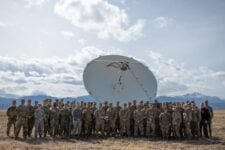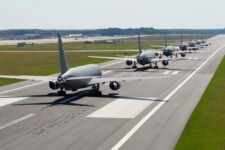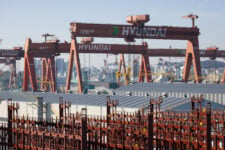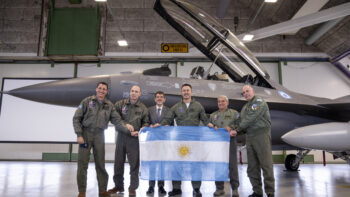
The U.S. and Pakistan are in talks to establish close cooperation and collaboration by their armed forces to counter insurgents who cross the Afghan-Pakistan border, a senior defense official said Wednesday.
The official, speaking on background, cited those discussions as additional signs of the improvements in the chronically troubled relations with Pakistan, part of a persistent drumbeat of positive views the official offered during a luncheon session with defense reporters.
The official confirmed recent reports that U.S. authorities have been negotiating with Pakistani officials on ways to stop the persistent flow of Taliban and other armed insurgents from Pakistan into Afghanistan and more recently, raids going the other way.
But, he added, the proposal would not involve U.S. or Afghan forces going into Pakistan to attack insurgents — an idea that has become even more explosive in Islamabad since the U.S. raid that killed Osama bin Laden. Rather, the proposal was for “working in cooperation on each side of the border,” he said.
He cited that as one of the signs of improved relations with Pakistan since the critical supply routes into Afghanistan were reopened after the prolonged closure following a mistaken U.S. attack killed Pakistani troops in an unknown border post.
The official conceded many issues remain unresolved with Pakistan, including the U.S. demand that Pakistan do more to shut down “safe havens” in its territory that the Taliban and the Haqqani militants use to train and rearm for attacks into Afghanistan.
The veteran defense official repeatedly rejected what he viewed as pessimism in reporters’ questions, stating that he was not going to accept the notion of anything but victory in the conflict, which is about to go into its eleventh year.
He said the “focus on how bad things will go results in an unreal discussion here in the U.S.” that he would not get into.
He cited the substantial increases in both the size and the capabilities of the Afghan security forces and voiced confidence that they would be absolutely able to defend the country after the bulk of U.S. and coalition forces leave in 2014.
He conceded the “safe havens” in Pakistan would be a problem, but insisted that was not “a mortal danger” to Afghan security.
He also noted gains in the number of children, particularly girls, in school, improvements in health care and the economy. And he said recent vote by the parliament to oust two top members of President Hamid Karzai’s cabinet as a sign of “progress in the Afghan political system.”
In response to questions about Afghanistan’s ability to ward off insurgent attacks after 2014, the official noted the agreement Karzai has signed to permit some U.S. and coalition troops to remain. And he said Washington and Kabul were negotiating another security agreement that would provide more details on the number of U.S.forces that would remain and what they would do. A U.S. counter-terrorism role would be part of that, he added.
The official’s willingness to engage with reporters after months of requests for information and his adamantly positive view clearly indicate the administration is eager to promote a more favorable view of the Afghanistan conflict during a heated presidential campaign. And it may be true.
Air Force picks Anduril, General Atomics for next round of CCA work
The two vendors emerged successful from an original pool of five and are expected to carry their drone designs through a prototyping phase that will build and test aircraft.


























